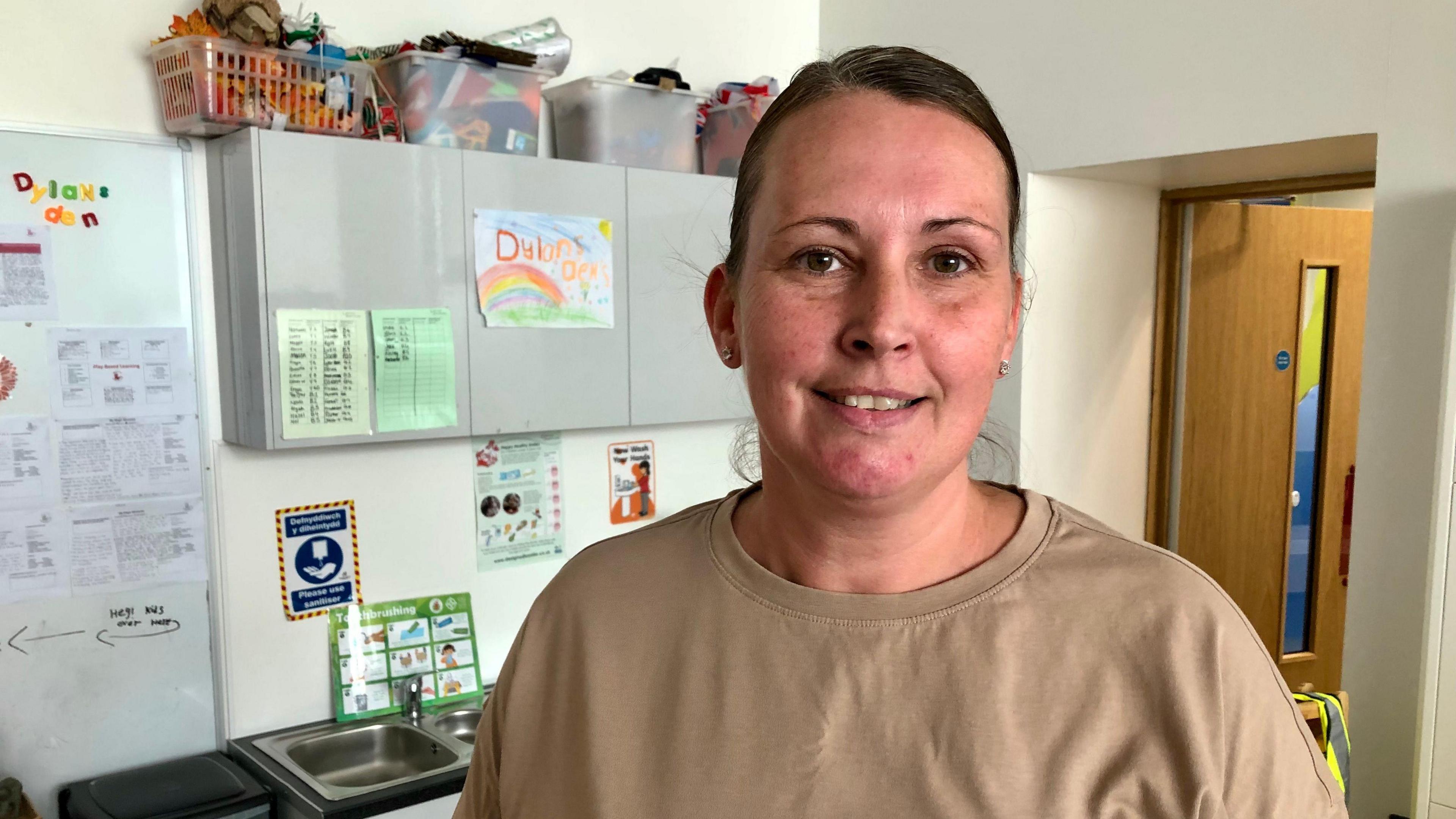Childcare bosses fear for future amid rising costs

A survey carried out before the Budget found that 91% of nurseries in Wales are expected to make a loss or break even this year
- Published
A nursery boss says "vital early years education" in Wales is at risk without significant financial help.
Childcare providers have united to tell the Welsh government the support it offers fails to cover their costs.
Ellis Jenkins, who runs a nursery in Newport, said costs had gone up 40% in recent years, and his business was facing an annual shortfall of more than £30,000.
The Welsh government said it had made business rate relief for the sector permanent and would review the childcare offer to nursery providers annually instead of every three years.
Wales childcare provider business rates scrapped
- Published12 November 2024
What help is there with childcare costs in Wales?
- Published8 April
Moving 10 miles could save us thousands in childcare
- Published2 November 2024
Providers in Newport, Torfaen, Blaenau Gwent and Caerphilly have written to the Welsh government.
A survey by the National Day Nurseries Association earlier this year found 91% of nurseries in Wales were expected to make a loss or just break even this year.
That report was published before Chancellor Rachel Reeves' Budget increased staffing costs for businesses.

"We can't cut corners... electricity, water rates, everything is going up," says Lisa Owen of Chuckles nursery in Bettws, Newport
Childcare providers say permanent business rate relief is a positive step, but does not take into account the impact the cost of living crisis and increased wage bills are having on the sector.
Lisa Owen, director of Chuckles nursery in Bettws, Newport, said the shortfall was costing her £1,500 a week.
"We haven't paid business rates since 2018 so I don't see, when the climate has changed as much as it has, why that's a help to us right now," she said.
"We can't cut corners... electricity, water rates, everything is going up, so we're up against it the whole time.
"Sixty per cent of my turnover goes on staff wages, they've gone up so we're under a lot of financial pressure and we have to ensure that we are trading within our costs.
"Part of our regulations say that we have to be sustainable for the security of the children because we can't just shut tomorrow."

"At the moment we're seeing a shortfall of over £30,000 a year," says Ellis Jenkins of Sunnybank in Newport
"Costs have increased 40% over the last three or four years and that's inflationary costs as well as national living wage increases," said Mr Jenkins, managing director of Sunnybank nursery.
"At the moment we're seeing a shortfall of over £30,000 a year. We're heavily reliant on staff.
"Recruiting and retaining is difficult and that extra money wouldn't just go toward supporting us financially but would enable us to re-invest in our teams, make the sector more attractive to work in and retain people."
The businesses want the Welsh government to increase the childcare offer funding rate to £8.80 per hour to reflect inflation and rising wages, and argued that the whole economy will benefit.
"We provide vital early years education here which prepare children for when they go to school," said Mr Jenkins.
"The economic benefit of investing in early years childcare is profound: We allow parents to go back to work, we provide a safe space for the children when they are in work and so the benefits aren't just about the children, it's about the Welsh economy.
"It's about being a focal point within communities."
The Welsh government said: “We recognise the financial pressures facing childcare providers in Wales and have taken action to support them.
“We have made small business rates relief permanent for registered childcare premises in Wales and have moved to reviewing the hourly rate paid to childcare providers, as part of the childcare offer, annually instead of every three years.
“We are also investing more than £100m a year into the sector to sustain and grow high quality childcare.
“We want Wales to be an environment where childcare providers can thrive and are having ongoing discussions with childcare sector partners [Cwlwm - a consortium of five childcare organisations] about how additional support could be provided.”
Related topics
- Published22 July 2024

- Published10 January 2024

